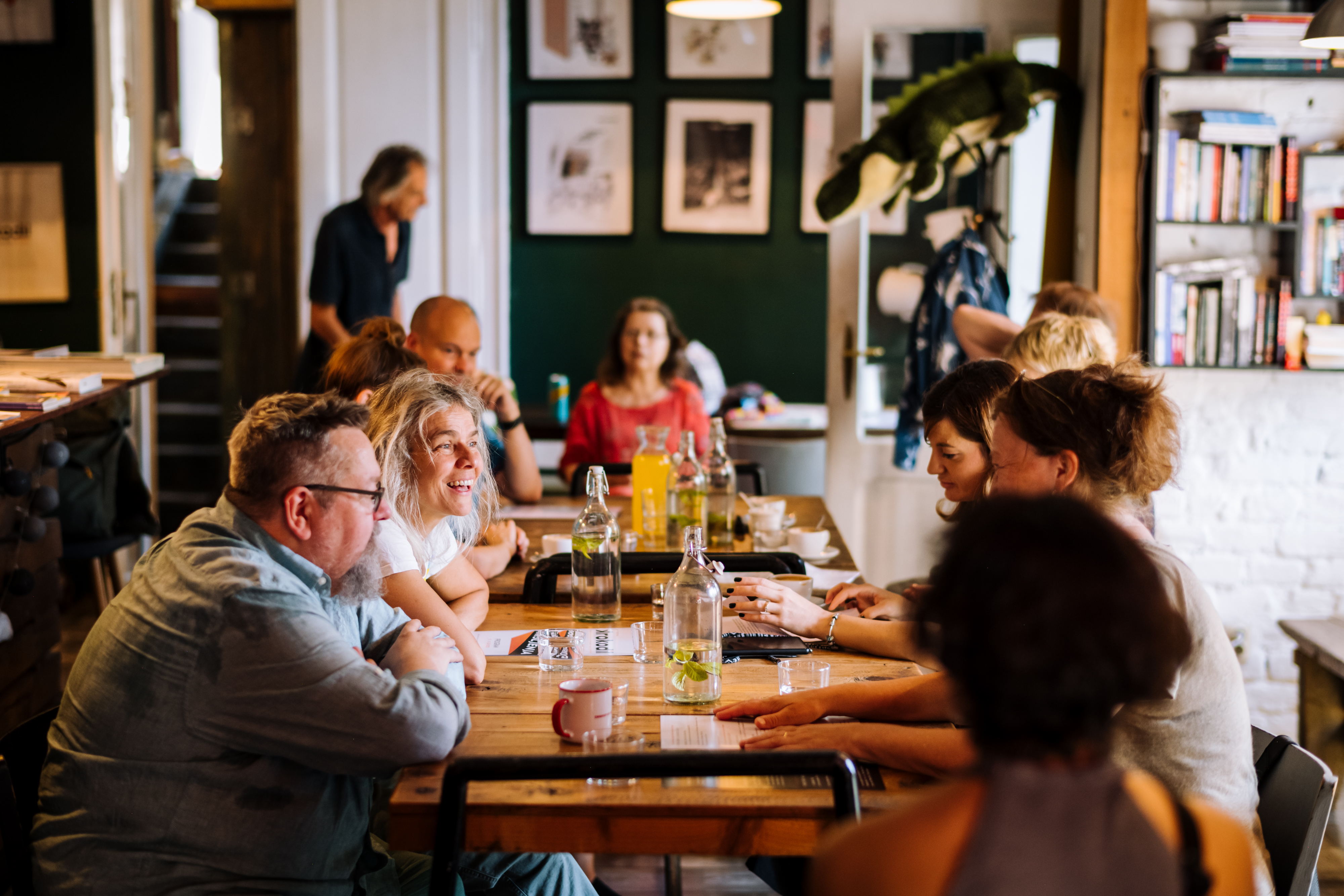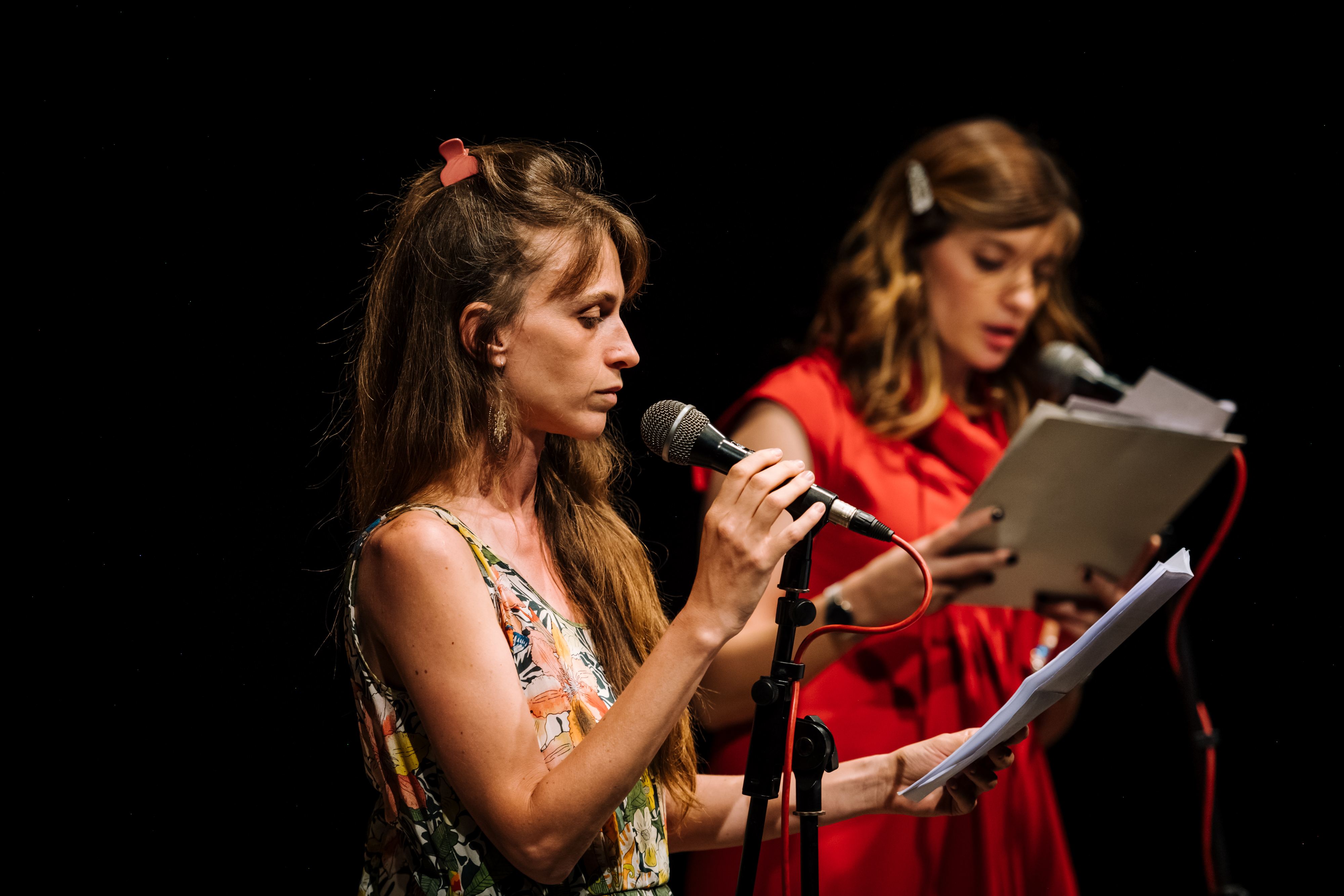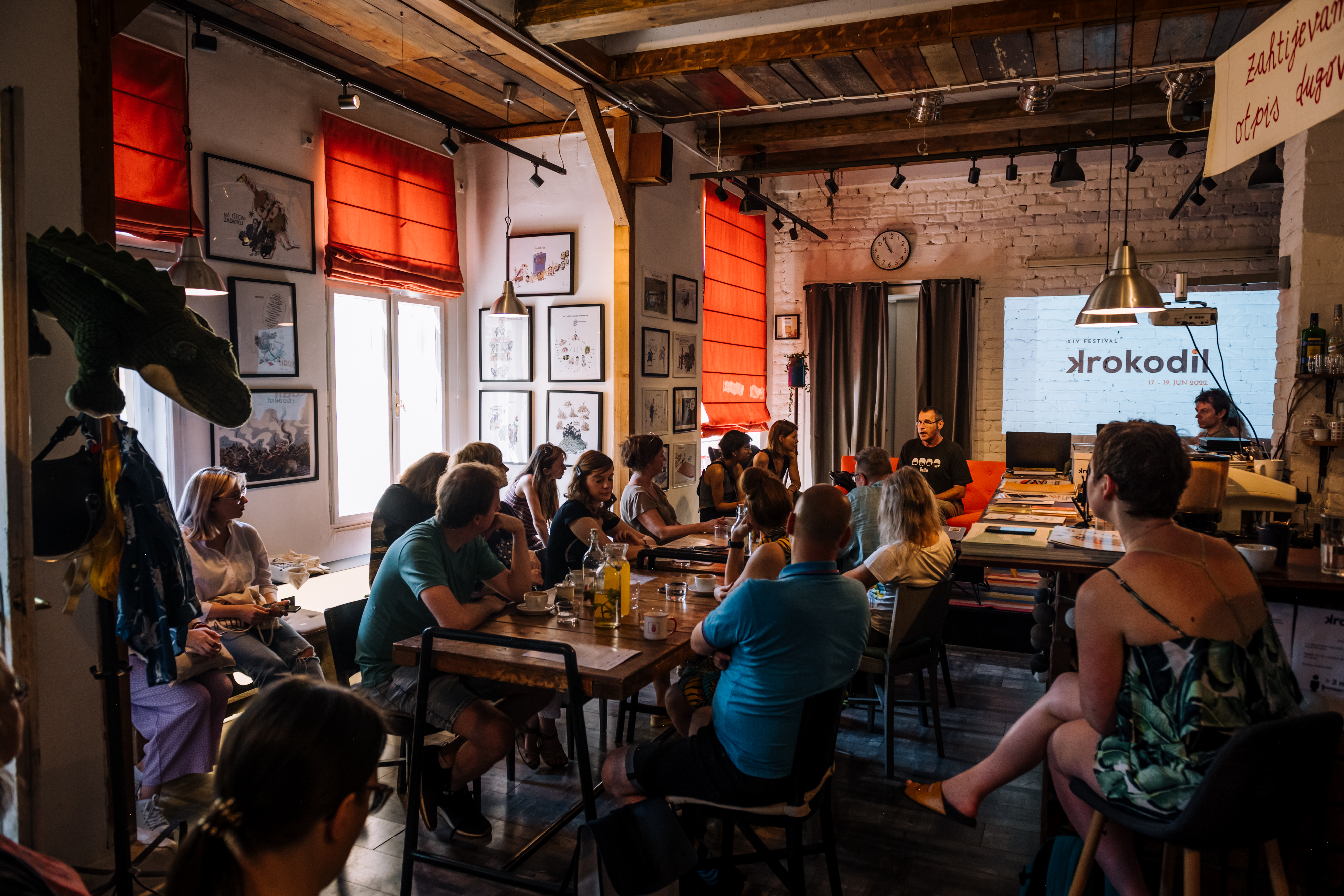Experiences at the KROKODIL Festival in Belgrade - By Ana Popović, Translator IT-SR
“This cannot be found anywhere else! is the most frequent comment Serbs level at their foreign guests while poring over piles of food…As far as cuisine goes, in Belgrade you can find almost anything you would hardly find anywhere else in one city at one establishment.” Those are the words from the book A Guide to the Serbian Mentality by Momo Kapor who most truthfully, most vividly and most charmingly described Belgrade, so if you are planning to visit Belgrade and the festival KROKODIL (and I truly believe that I’m going to convince you to put this on your bucket list ☺), get yourself this book and you’ll be laughing reading it from beginning to end.
Now read again Kapor’s quoted text and apply it to the above mentioned KROKODIL Festival, i.e. association (an acronym KROKODIL in Serbian stands for: “Literary Regional Gathering That Alleviates Boredom And Lethargy”) which was founded in 2009 and has gained an international reputation for its literature festivals as well as many other collaborative projects.
Last year’s fourteenth edition of the KROKODIL Festival was held in Belgrade under the title The Year of Magical Thinking at the open amphitheatre in front of the Museum of Yugoslavia and at the Centre for Cultural Decontamination for three days and evenings in June (from 17 to 19 June). It featured readings, discussions (one of which, entitled Translation Café, was dedicated to CELA participants where they could discuss about the most common challenges translators are faced with nowadays), sofa interviews, musical and stage performances, programmes for children and youth, meetings with journalists, publishing houses (one of the events, Breakfast with Publishers, organized for CELA writers and translators, was very beneficial given that the participants had the opportunity to present their work to publishing houses) and audiences, book signings, forums, debates, promotions, online discussions, video projections and conferences.
It wasn’t magical only because of that, but it was rather a very special edition, because of the third evening, divided in two parts, where the audience had a chance to meet the artists from the CELA project and The Poets Sounds, realised in cooperation with Lettretage from Berlin. As on the previous festival evenings, the programme was hosted by the incredible Mima Simić (according to her words not a big fan of poetry unless it was the lyrics of Britney Spears’ songs☺).
The evening opened with the performances of three CELA pairs composed of a writer and a translator, in this case Arianna Bonazzi and Ana Popović (yours truly), Andraž Rožman and Jelena Dedeić and Lisa Weeda and Bojana Budimir.
The first pair, Arianna and Ana, talked to Mima about their mutual trust and how important their relationship was, as the translator often improved the original text. “Ana is my favourite,” Arianna revealed. Then Mima asked about their collaboration and whether they had gotten along during joint work and Ana made a joke, her voice hoarse, that they had been arguing just before the performance and that’s why her voice sounded like that.
Andraž Rožman and Jelena Dedeić performed an excerpt from Rožman's book, Tito's Son. Their performing concept helped convey a dose of craziness and positive charge in the best possible way. After that Mima asked about the differences between Slovenian and Serbian languages since they are quite close to which Jelena replied that it made their communication much easier. Andraž pointed out that he wanted to relativize craziness, that the one who is crazy is very alike to the one who is not and said to Mima that “The crazies are those who tell the truth”.
The last CELA pair, Lisa and Bojana, dressed in black in order to convey the mood of the text, pointed out that creative effort comes from a positive charge. The impression is that they are almost the same, and their reading of the text simultaneously just adds to it. “Flemish is an erotic version of Dutch”, and the accent plays a big part, Mima’s interlocutors agree. Lisa also talked about her experience in VR writing and how she teaches young writers not to write, but to draw.
In the second part of the evening the audience had the chance to enjoy the performances of artists Tone Avenstroup from Norway, Miia Toivio from Finland and Katalin Ladik, Hungarian poet born in Novi Sad, and their performance was rewarded with a standing ovation. The programme was concluded with a performance by the speech art trio Sprechbohrer, who is all about experimenting with the boundaries of music, phonetics and literature.
Now you may have a clearer picture of why the excerpt from Momo Kapor’s text could be applied to this festival, because it is really something that cannot be found anywhere else - it is more than a festival.


